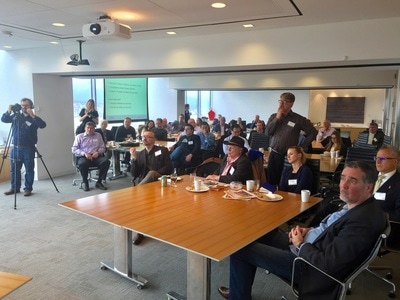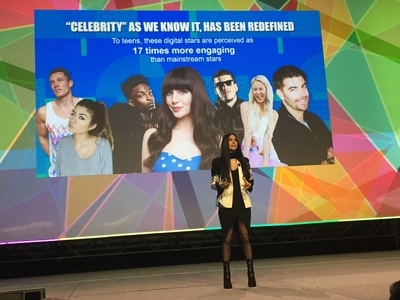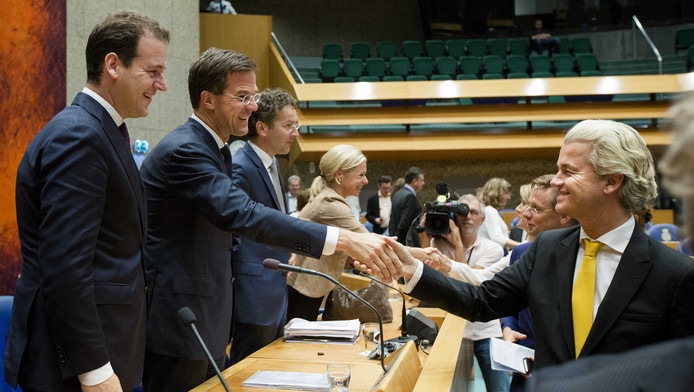|
Creating a Canadian standard for term sheets to get more and better deals done, faster Over the past year and a half I have been conducting a workshop on term sheets and structuring deals across Canada. This is part of the National Angel Capital Organization of Canada’s (NACO) effort to encourage angel investing and in particular help tech businesses get off the ground. It has taken me to Niagara, Kitchener-Waterloo, Calgary, Victoria, my hometown Vancouver, Kingston in Jamaica and next week Regina and Saskatoon. Wherever I go there are keen and very diverse audiences willing to learn how to structure and do better deals. Having done this work for many years it is sometimes surprising to see how light the knowledge about this is on the ground and what difference an intense 4-hour workshop can make, not to mention getting people enthusiastic about participating in an asset class that was until recently the domain of a privileged few. Because yes, people are writing cheques into high-risk ventures or into funds that are trying to get a return on supporting emerging tech firms across Canada. As I have learned, the term sheet is the starting point of what sometimes can be a very long and rocky relationship, so better get it right on day one. In the process it has become clear that Canadian start-ups often use outdated term sheets, sometimes found after a Google search or by simply copying American documents that are an awkward fit for local deals. As a board member of an angel fund, I see many founder generated term sheets and even when there are reputable advisors or directors involved, the quality is generally poor. I do not need to see a term sheet where one page is dedicated to director biographies. These are not deal terms and documents like this go straight to the garbage can, unless we find the company willing to renegotiate and rewrite the document. In most case such a joint effort yields much better term sheets and at the same time we have enhanced the entrepreneurs’ understanding of the process. So how great it was that Boris Mann – another Vancouver tech veteran – and I got invited to project manage #NACOCommondocs, a project designed to launch a Canadian standard for Common and Preferred share deals as well as Convertible Loan and Convertible Equity, the latter also known as SAFEs, or Simply Agreement for Future Equity. As easy as it would have been for Boris and me to lock ourselves in a room for a day and bang these new standards out, they have to reflect the Canadian market place and regional opinions. And, some deep legal thought from the six law firms that are sponsoring this important project, not to mention accounting opinions. So we have travelled to Montreal, Toronto, Calgary, Victoria, Halifax and of course Vancouver where lawyers, angel investors and entrepreneurs commented on our work and at times ripped apart some of our assumptions and deeply held beliefs. Our egos, believe me, can take that. There is nothing like solid and constructive feedback that seeks to improve your product. And yes, there are regional differences. In some parts of the country angels will insist on having the ‘redemption right’ in any term sheet, whereas in Vancouver and Calgary the mere mentioning of this concept generated outright hostility. Try and synthesize those two points of view into one standard document! But as always in life, the truth is somewhere in the middle and there are many ways is which we can bridge the discrepancies and still present a menu card from which to build a perfect term sheet for your start-up. Both angel investors and founders can now use a base term sheet with options to extend with additional clauses that will better reflect their deal. At the same time lawyers will no longer have to worry about wasting billable time on educating cash strapped company founders on what a term sheet really is. They will be able to point to the NACO website and say: educate yourself, negotiate a deal and we can help you with the rest. As we dove into this it became clearer that there are indeed many aspects depending on if you are doing a common share, preferred share, convertible loan or a convertible equity (SAFE) deal. Tax implications, share options, vesting schedules, you name it, it is all more than just sticking a clause in an agreement. So in addition to the term sheets and accompanying educational notes we will present a number of one-pagers on the NACO portal when the project is launched April that will complement and enhance knowledge. Expect notes on tax credits, friends & family rounds and the not unimportant one that answers the question: which document to use when? But above all the key drive is to build better companies as Canada’s economy is diversifying while at the same time being asked to compete in a razor sharp global environment. Last week’s BC Tech Summit in Vancouver made me realize how far we have come over the past twenty years and how mature start ups have become, even when (often) using crappy term sheets. There is strong momentum with many ideas and readily available capital, although we can do more to create better companies and mobilize more investment dollars. The challenge will be for solid people to combine these ingredients and build a strong technology cluster that will – as much as angel investors like exits – stay in Canada and build wealth right here.
0 Comments
The pioneer of modern day populism gets ready for a vote that may change very little
Being the first always takes some unusual bravery and unique character. It was the Dutch that started experimenting with right leaning movements that put immigration on the agenda in the late 1990s and its initial champions were indeed hardly average citizens. A flamboyant gay professor, an errant moviemaker and a poor Somali refugee turned politician were the pioneers in ending the small nation’s politically correct consensus model. Championing enlightenment values they warned of a society that would succumb to accommodating non-western values and, eventually, the erosion of individual rights. The professor convincingly argued he was not prepared to fight the 1960s battle for women and gay rights again, the refugee and moviemaker teamed up to make a controversial short film about the submissive role of women in Islam. Brave as they were, within short order two of them were murdered and one was hounded out of the country to take up US residency. Pim Fortuyn, Theo van Gogh and Ayaan Hirsi Ali had been able to create a foundation on which the Dutch will now contest a much anticipated and divisive election that will tilt country further to the right, fracture its parliament and decimate one of the dominant purveyors of that famed consensus, the Labour Party. That said, it remains to be seen if the March election will bring the sort of change that some are now expecting. Almost each and every piece written about The Netherlands ever since Fortuyn rose to international fame will wax on lyrically about Dutch tolerance and its liberal attitudes. The lax attitude to drugs in particular gives North Americans something to drool about for some reason. Foreign commentators fail to understand and align their rosy view of the country with the realities that literally brought blood to its streets. The perceptions are as mistaken as they are misinformed. The Dutch by nature are not more liberal than any other group: history and culture have forged a nation that is at best extremely pragmatic and at worst pretty indifferent. The political violence and drama are not a shattering of a liberal nirvana, no; they represent a logical reset, as something was apparently not working anymore. The pragmatic consensus had run its course, a notion not fully understood around the globe. When its economy rose from the ashes in the post war world, cheap labour from Southern Europe and notably Turkey and Morocco fuelled growth and created a lower class of non-integrated citizens of whom the expectation was that they would pack up and go once they had reaped rewards from a Dutch dream. But nothing like that ever materialized – on the contrary, family reunifications increased the size of this group dramatically – and a growing Muslim minority became a feature of Dutch life. In a nation that stood silently by and in many cases actively collaborated in the deportation and murder of 102,000 of its Jewish citizens, the guilt of that weighed so heavily that any form of discrimination, indeed any critical discussion of minorities became a total taboo. The instinct was to make it work as best as possible and to rather not talk about it. In an odd twist of fate it was the Dutch contribution to the holocaust that ensured that instead of Jews its new and sizeable minority was now Muslim. As the 1990s unfolded and more refugees (Eastern Europe, Africa) came to take up Dutch residency, the European Union added its weight by usurping the nation’s sovereignty, its currency and with it its confident sense of self. Native Dutch emigration against a backdrop of political discontent and an emerging economic crisis set the tone for the first decade of the new century. If you can get out, you might as well. For a brief moment the belief that things would be fine emerged, hopes of a ‘moderate Muslim’ and successful integration patterns heralded some calm, but not for long. The Brexit vote and migrant streams from the Middle East boosted the fortunes of the new right and put pressure on Mark Rutte, the current prime minister who is heading a reasonably successful Liberal-Labour coalition. With its three pioneers off the stage, Fortuyn 2.0 emerged in the form of Geert Wilders, an erstwhile liberal politician who broke ranks with his party over Turkey’s potential EU membership. His words were harsher, far more direct including a political rally in which the crowd shouted “less, less!” to Wilders’ question if they preferred “less” or “more” Moroccans. He answered his audience that “we will take care of that” and it landed him in court, which, true to the populist instincts of his movement only boosted his popularity and poll rankings. Any attention is better than no attention and the nature of his campaign had become mainstream as his star continued to rise in the polls. Another thing the nation pioneered successfully was reality-TV. Yes, the wave of shows that enveloped the world originally started out with the ‘Big Brother’ series in the 1990s: launched in The Netherlands, exported globally. The coarser and the more vulgar the language, the more viewers, and so it went with Dutch politics where – much like Donald Trump – the race to the abyss was accelerated in order to get more media attention. Morality and decency be damned, the voter not only stopped caring, they had developed a veritable appetite for it all. And leave it to the Dutch to do one better. Only a few weeks ago it was treated to a real ‘golden shower’ video with a famous 1970s & 80s singer allowing herself to be rained on by her lover. Yes, by all means do the math on her age. So in this cacophony of noise, political instability and eroding sense of nationality, populist parties are thriving and if polls hold steady Wilders’ Freedom Party has a decent shot at being the largest party, with second place going to Rutte’s free-market liberals, the very people who until now represented the real Dutch right. The left has fractured into a Socialist Workers Party, Party for Animals, GreenLeft, Democrats 66, the remnants of Labour and 'Think' a party representing immigrants. To top it all off the Party 50+ is gaining traction in a nation where the greying top layer is increasingly worried about its entitlements although it has consistently refused to produce babies at the replacement rate in order to secure these benefits. And at the same time no one is interested to have the required level of immigration to supplant these unborn babies. Call this hedonism at its best. So in a bizarre way the fear of immigration contrasts itself with the need for immigration, a fact none of the Dutch parties, left or right, has so far really acknowledged. Dutch consensus worked well historically as proportional representation forced the parties to collaborate, sometimes tilting left, sometimes tilting right, but never any dramatic shift in either direction. The pragmatic mandate brought non-ideological common sense to governing the lowlands and that may indeed explain the nation’s social and economic successes in the post-war years. The question now is if the current pressures on the system will force it to break or not. If Wilders wins big, he will most likely not become prime minister as any coalition can lock him out of power, a position he actually may prefer. It is better to oppose and make the usual noise than to take real responsibility. At the same time any coalition government will be weak by virtue of the number of parties now required to get support from a parliamentary majority. So the best the Dutch can hope for is a fragile consensus that may not be able to carry the load of issues it is being asked to deal with. The cracks that have started to emerge in Dutch political system after Fortuyn, Van Gogh and Hirsi Ali may reach deeper after this election. But it will not be an election to end it all, more one to perpetuate it all. UPDATE March 16, 2017: So the results are in. The populist right under Wilders gained, but not nearly as much as was projected only a month ago. The newer parties on the left (Green, Party for Animals, Think) did well too, but not nearly well enough to change the game. The two largest parties lost big (Labour was clobbered and the Free-market Liberals lost but are still the largest party in parliament with 20% of the seats) while the traditional Christian-Democrats and Independent Liberals recovered some ground. So? The electorate gave a stern but mild warning to the traditional parties to get their act together. The voters pulled both right and left, but not hard enough. The traditional centrist parties now have the unenviable task to agree to form a four party coalition that will need to steer the small nation through the stormy waters it is in. A mild repudiation of the ‘ruling elites’ has given these very elites the task to try it once more, but they will have to take into account that that there is some unhappiness that will need to be addressed. An outcome where no one wins is probably the best definition of a compromise. The Dutch are good at that and in the end may not be a bad thing at all. |
Archives
April 2020
Categories
All
|





 RSS Feed
RSS Feed